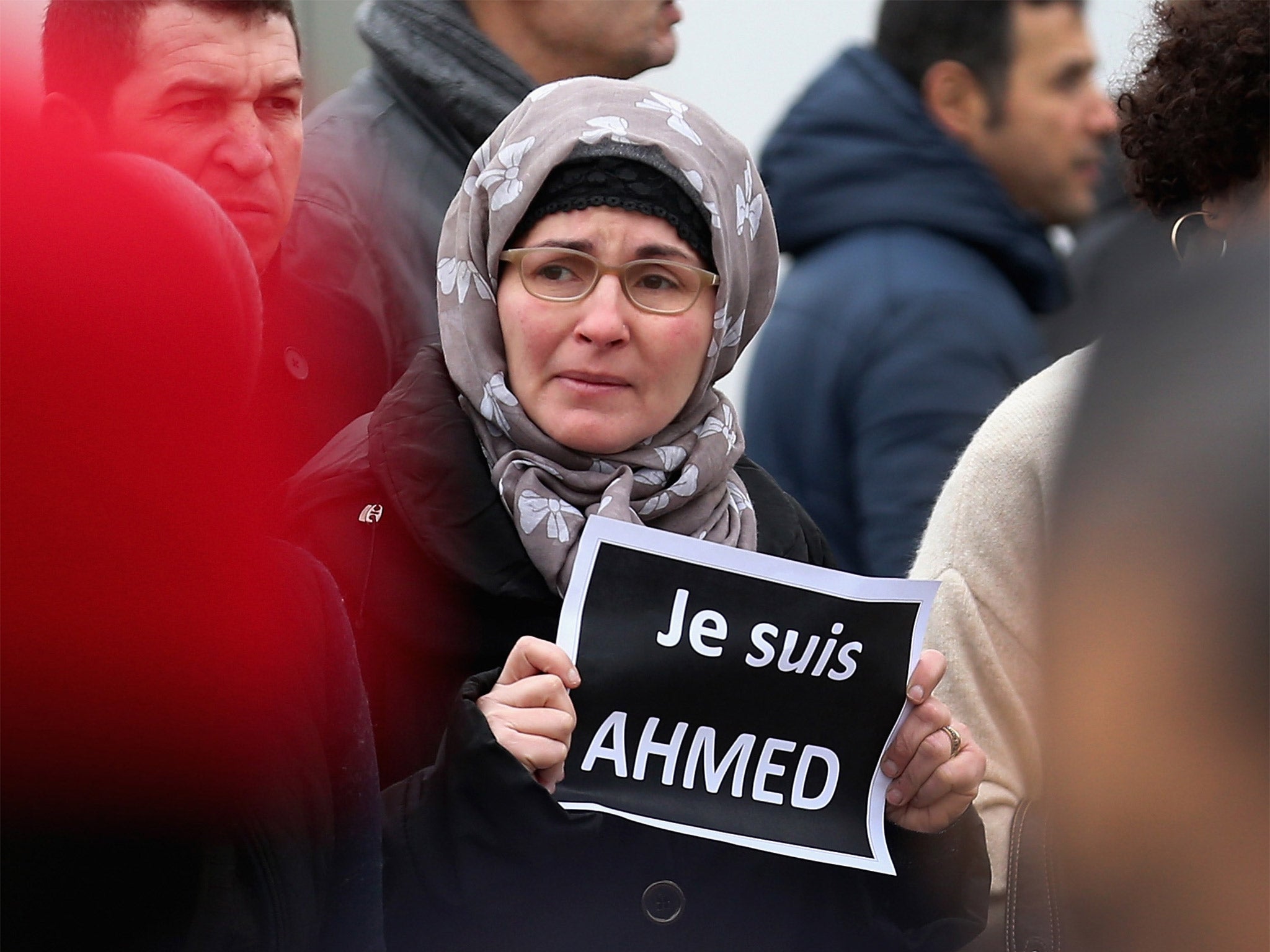How many more books will there be telling me how to be a Muslim? Week in Books column

Your support helps us to tell the story
From reproductive rights to climate change to Big Tech, The Independent is on the ground when the story is developing. Whether it's investigating the financials of Elon Musk's pro-Trump PAC or producing our latest documentary, 'The A Word', which shines a light on the American women fighting for reproductive rights, we know how important it is to parse out the facts from the messaging.
At such a critical moment in US history, we need reporters on the ground. Your donation allows us to keep sending journalists to speak to both sides of the story.
The Independent is trusted by Americans across the entire political spectrum. And unlike many other quality news outlets, we choose not to lock Americans out of our reporting and analysis with paywalls. We believe quality journalism should be available to everyone, paid for by those who can afford it.
Your support makes all the difference.There are three kinds of Muslims, according to Ayaan Hirsi Ali’s new book, Heretic. Yes, three kinds in a population of 1.6 billion followers of the faith who live in vastly different cultures around the globe. Firstly, she says, the fundamentalists who see Islamic edicts as eternal truths, set in the seventh century and unchangeable ever after. Hirsi Ali calls them “Medina Muslims”, who kill non-believers and blasphemers, often in horrendous medieval circumstances. We know this category well.
In the second are the “Mecca Muslims”, who are devout but non-violent. Phew. The third lot are the ones with whom she identifies – the dissidents or “Modifying Muslims”, a few of whom, like her, have left Islam altogether, but continue to engage critically with the faith.
So which one of these three would be a fit for someone like Zia Chaudhry, the British-Asian barrister whose recently published book, Just Your Average Muslim, makes clear that he is both an informed, respectful and practising Muslim but also thinks critically about his faith, even urging some of the reforms within Islam that Hirsi Ali suggests, though she far more sensationally?
And out of the three kinds, which one am I? I think I must be a fourth category – the one that is bored to the back teeth of books, articles, programmes, more books, articles and programmes – on bad Muslims, on how to be a good Muslim, or even an “average Muslim”. Would we speak of three kinds of Jews or Christians? Isn’t this the disturbing tendency underlying all prejudice – the need to simplify and reduce?
The fact that I don’t fit into the three categories does not mean I am an aberration. Neither are my liberal or devout or undecided or non-practising or non-religiously literate Muslim friends, all so vastly different in their (non-) religious outlook that they might barely identify with each other.
In mitigation, Hirsi Ali says that it is the religion that is inherently violent, not Muslims: a religion that has stayed resistant to change for the past 1,400 years, its call to violence apparently enshrined in scripture, rather like “an eye for an eye” (in Exodus, Leviticus and in Deuteronomy).
Hirsi Ali recaps the traumatic personal history she described in a previous book, Infidel – the deeply religious, ideologically unthinking, upbringing, the near miss with an arranged Islamic marriage. She also admits to have been the kind of teenager who thought Salman Rushdie should die for writing a novel she hadn’t read. Surely this puts her younger self in the Medina Muslim category. It is also this kind of muddle that comes from theorising on “how to be Muslim” out of personal experience. I would say as much for those memoirs written by former Muslim extremists who relate a traumatic early childhood of National Front or BNP racism and seem to suggest that it is this that led them towards Islamic extremism. It is one story, their own, and extrapolations can be clumsy and misleading.
I started reading Heretic on the same day that I switched on the radio to hear that Utah was bringing back the firing squad. Extreme acts of violence can be found in Western secular law as well, of course. And acts of terror can be committed against Muslims in the West too. Remember the killing of three Muslims in Chapel Hill, USA, shortly after the Charlie Hebdo attacks? (Though that act of terrorism didn’t hit our headlines).
Hirsi Ali is angry with wishy-washy Western liberals for being “apologists” for Islam. She is also angry with those who accuse her of hate speech. Some might be rightly offended by what she says, though she has the right to say it, a Voltaire-ian principle that once again became relevant this week when six authors, including Peter Carey and Michael Ondaatje, pulled out of a PEN gala in New York because of its plans to give the satirical French magazine, Charlie Hebdo, a freedom-of-speech award. Carey, in his comment to The New York Times, spoke of the “hideous crime” committed in Paris but also pointed out “PEN’s seeming blindness to the cultural arrogance of the French nation, which does not recognise its moral obligation to a large and disempowered segment of their population”.
Salman Rushdie took to Twitter to brand the six authors “pussies”. But he’s wrong to attack their courage. It’s brave to go against the prevailing rush of “Je Suis Charlie”, by making a distinction between the murderous act, and the offensive material – some would call its images of hook-nosed Arabs downright racist – that has featured in its pages. That’s why, in this instance, I’m saying, “Je suis Peter Carey”.
Join our commenting forum
Join thought-provoking conversations, follow other Independent readers and see their replies
Comments